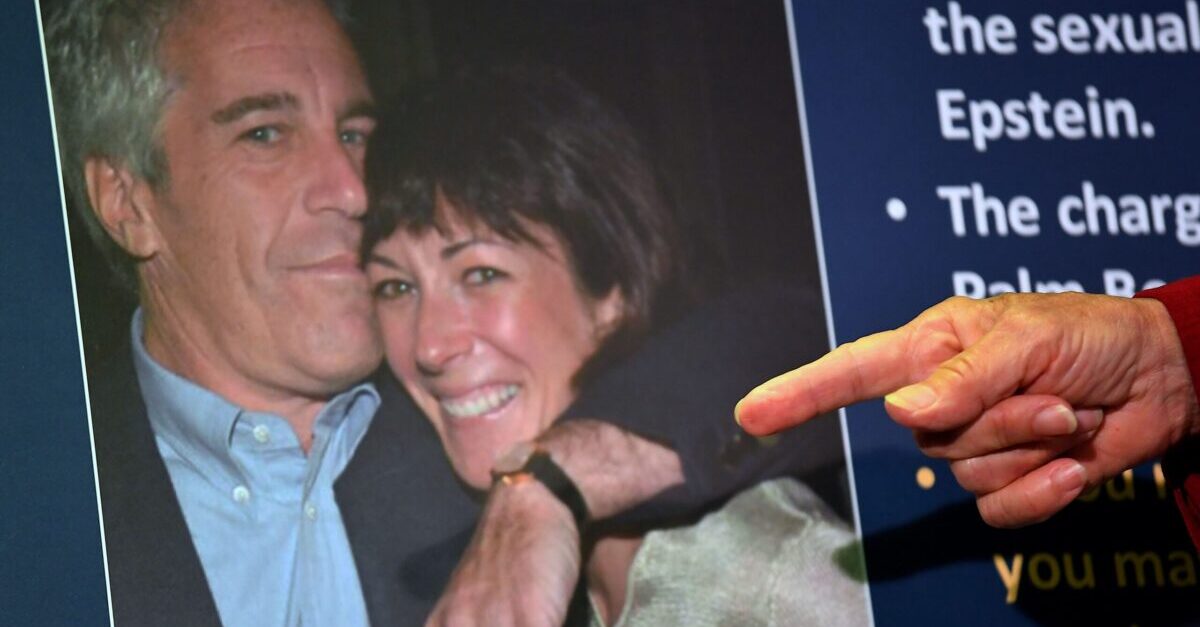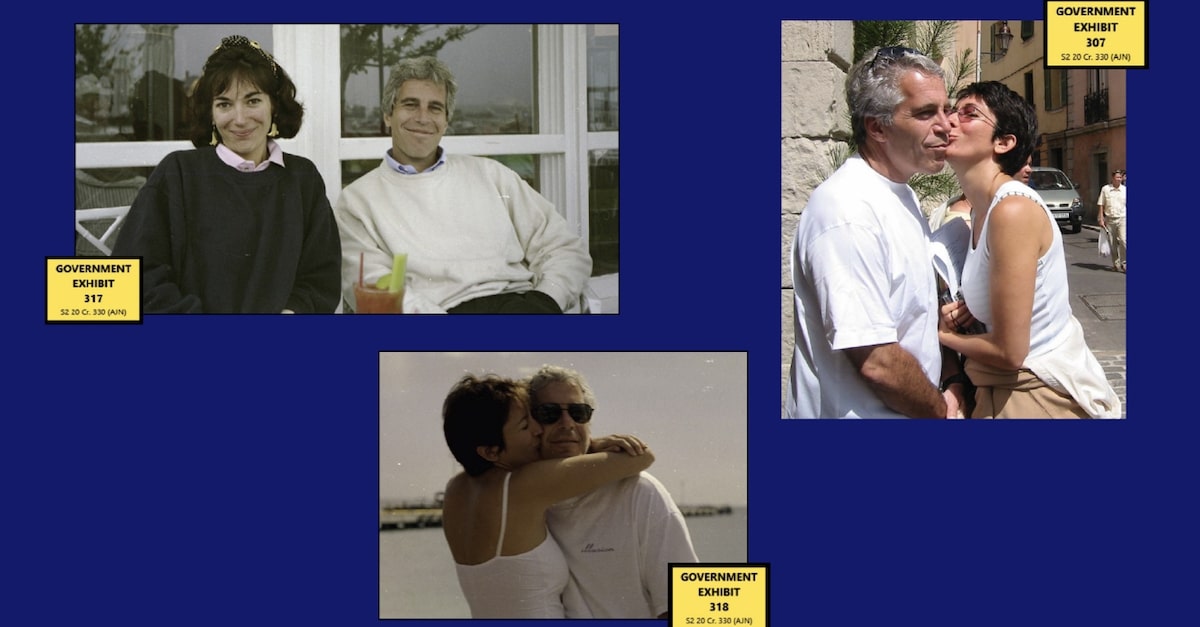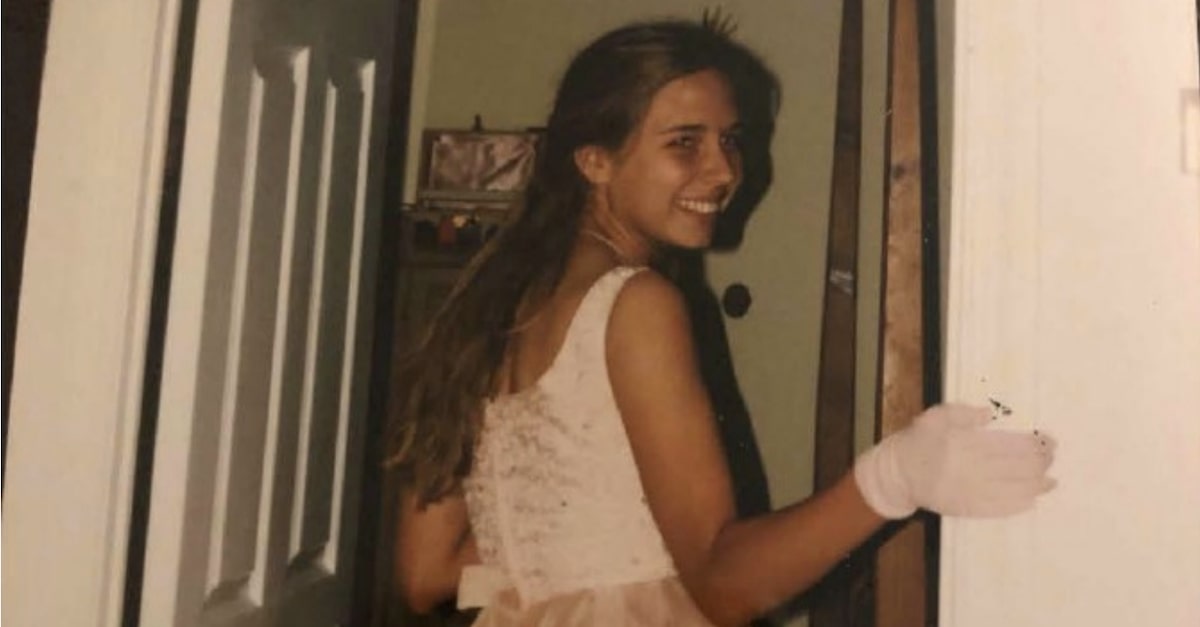
In a long-awaited reckoning more than a quarter century in the making, a federal jury on Wednesday found Ghislaine Maxwell guilty of sex trafficking and conspiring to entice minors for years of Jeffrey Epstein’s abuse.
Maxwell stood trial for six federal offenses for conduct spanning from 1994 to 2004, roughly breaking down into alleged violations of the Mann Act and a distinct federal anti-sex trafficking statute. She was convicted of five of them, adding up to the possibility of several decades imprisonment for Maxwell, who turned 60 years old on Christmas Day.
The last count alone, the substantive sex trafficking count, carries a maximum penalty of 40 years imprisonment, effectively a life sentence for a woman who turned 60 years old on Christmas Day. Her birthday, and the holiday, came and went without a verdict following the first week of deliberations.
The other four counts of conviction carry a maximum 25 years imprisonment. The count of acquittal had a five-year maximum sentence.
Diverse in age, gender and ethnicity, the 12-person jury panel and several alternates represented a broad cross-section of New York City and its surrounding areas. Their identities are unknown to the public, and they are referred in court only by their number. Public proceedings for jury selection, however, revealed that they appeared to be relatively insulated from what Maxwell’s lawyers described as a “tsunami” of media coverage preceding the case, and they hailed from various professional backgrounds. They reached the verdict on their sixth day of deliberations — even as it appeared deliberations could spill into the new year.
As prosecutors and a defense attorney advanced closing arguments on Monday, Dec. 20, the panel appeared to watch the proceedings in rapt attention. They gazed down at evidence on their computer screens for both the defense and prosecutions—and scribbled down notes even as Maxwell’s attorney picked apart seemingly arcane points of law. Six days of deliberations followed, the first being roughly 45 minutes and the final one ending with a verdict around nightfall.
Having heard evidence gathering entered into the court record over the course of three weeks, the jury rendered a verdict on Wednesday.

Ghislaine Maxwell’s prosecutors presented this slide to jurors to illustrate their enduring, intimate relationship during the government’s summations.
During the government’s case, four accusers took the stand against Maxwell, and other witnesses took the stand to support their testimony. The debut accuser, testifying under the pseudonym “Jane,” told jurors that she was 14 years old when she met Maxwell and Epstein at the prestigious Interlochen arts academy in Michigan. There, “Jane” said, she saw Maxwell walking by with her “cute little Yorkie,” with Epstein with her.
After the introduction, “Jane” said, she gave the pair her mother’s contact information and arranged a follow-up meeting in Epstein’s Palm Beach house. That’s where a years-long cycle of abuse began, according to Jane, who claimed Maxwell touched her breasts and Epstein subjected her to sometimes-“painful” abuse with a vibrator.
Though cited throughout the indictment, “Jane’s” testimony exclusively formed the basis of two of the six counts of Maxwell’s indictment: enticing an individual under the age of 17 to travel to engage in illicit sexual activity—and a related count punishing actually transporting her for that conduct.
The jury convicted Maxwell on one of these counts.
Maxwell’s attorney Laura Menninger clashed with “Jane” on cross-examination, grilling her on perceived inconsistencies in what she told the FBI years before she took the stand and on she told the jury.
“Her lapses of memory pervade this case,” Menninger told jurors during summations, referring to “Jane.”
Assistant U.S. Attorney Maurene Comey, the daughter of ex-FBI director James Comey, characterized the alleged discrepancies as trivial. The defense said that “Jane” recounted seeing “The Lion King” when it wasn’t open and attending the late journalist Mike Wallace’s 80th birthday when the chronology didn’t match.
“Ladies and gentlemen, which would stand out more in your mind, how old you were on Mike Wallace’s birthday or how old you were the first time a middle-aged man molested you?” Comey asked.
The final sex trafficking count related to the testimony of Carolyn, who testified that Maxwell touched her breasts. She also told jurors that Maxwell saw her naked some 30 times in Epstein’s massage room, beginning at the age of 14 years old.
“[Maxwell] came in and felt my boobs and my hips and my buttocks and said that — that Mr. Epstein would — that I had a great body for Mr. Epstein and his friends,” she said in the witness box.
Maxwell’s defense team tried to pick apart several elements of her story but also argued that her account did not meet the elements of the law. Carolyn testified that her mother would not let her travel, and the sex trafficking statute refers to alleged acts that are “in and affecting interstate and foreign commerce.”
“Carolyn never went to New York. She never traveled anywhere,” Menninger said.
That witness did testify, however, that she was invited to the U.S. Virgin Islands and declined, knowing that her mother would never allow it. Prosecutors also argued that Maxwell sent Carolyn lingerie from Epstein’s office in New York.
The defense also tried to undermine Carolyn’s testimony by noting that she only sued Epstein and his associate Sarah Kellen in a 2009 civil lawsuit, not Maxwell. Kellen, who has never been charged with wrongdoing, maintains that she was Epstein’s victim, not his co-conspirator.
Maxwell’s other two accusers—”Kate” and Annie Farmer, the only witness to testify under her true and full name—testified with an instruction by U.S. District Judge Alison Nathan that their description of alleged sexual conduct cannot be used to convict Maxwell of the crimes charged. “Kate” was 17 years old at the time of her alleged sexual contact with Epstein, above the age of consent in the relevant jurisdiction.

This teenage photograph of Annie Farmer going to the prom was introduced into evidence during the trial of Ghislaine Maxwell. (Photo courtesy of DOJ)
Farmer, who was 16, was also no longer a minor in New Mexico, where Farmer alleged that Maxwell touched her breasts during a massage. Farmer was, however, allegedly a minor in other jurisdictions from which she traveled.
Clarifying that distinction, Judge Nathan told jurors that “Kate” was not an alleged victim of Maxwell, but Farmer was.
Neither of their stories stand alone for any charge of the indictment, but they were used by the prosecution to assert that Maxwell’s conduct was part of a pattern of exploiting young and vulnerable teenagers for sexual abuse. Three of the four women claimed that Maxwell touched their breasts, and multiple witnesses testified that they came from struggling, single-parent households.
For the defense, the accuser’s stories showed the influence of “memory, manipulation and money.”
“All of these witnesses have changed their stories many times. Why?” Menninger asked, in summations attacking the women and their lawyers by name in slides presented to the jury.
Though the accusers made millions in settlements from a fund designed to compensate Epstein victims, prosecutor Alison Moe noted that that litigation has ended, and those checks cleared. All they stood to gain from sworn testimony would be reliving trauma and risking prosecution if they made false statements, the prosecutor added.
“Did that look fun?” Comey asked, in a poignant question for jurors who witnessed sometimes-tearful testimony. “Why would they put themselves through that, when they’ve already gotten millions of dollars?”
Jurors ultimately requested the full transcripts of all four victims: “Jane,” “Kate,” Farmer, and Carolyn.
U.S. Attorney for the Southern District of New York Damian Williams saluted the courage of these women in a statement immediately following the verdict.
“A unanimous jury has found Ghislaine Maxwell guilty of one of the worst crimes imaginable – facilitating and participating in the sexual abuse of children,” Williams said. “Crimes that she committed with her long-time partner and co-conspirator, Jeffrey Epstein. The road to justice has been far too long. But, today, justice has been done. I want to commend the bravery of the girls – now grown women – who stepped out of the shadows and into the courtroom.”
“Their courage and willingness to face their abuser made this case, and today’s result, possible. I also want to thank the career prosecutors of the Southern District of New York, who embraced the victims’ quest for justice and have worked tirelessly, day in and day out, to ensure that Maxwell was held accountable for her crimes.”
“This Office will always stand with victims, will always follow the facts wherever they lead, and will always fight to ensure that no one, no matter how powerful and well connected, is above the law,” Williams added.
Maxwell’s lawyer Bobbi Sternheim delivered brief remarks to reporters outside the courthouse.
“We firmly believe in Ghislaine’s innocence,” Sternheim said during a makeshift press conference. “Obviously we are very disappointed with the verdict. We have already started working on the appeal and we are confident that you will be vindicated.”
With Maxwell’s conviction, the Epstein saga is far from over, even notwithstanding the Brit’s future appeal. Virginia Giuffre, whose civil lawsuit helped spark Maxwell’s prosecution, has pending litigation in the same courthouse against Prince Andrew. She released a statement applauding the verdict.
“My soul yearned for justice for years and today the jury gave me just that. I will remember this day always,” she tweeted. “Having lived with the horrors of Maxwell’s abuse, my heart goes out to the many other girls and young women who suffered at her hands and whose lives she destroyed.”
“I hope that today is not the end but rather another step in justice being served,” Giuffre added. “Maxwell did not act alone. Others must be held accountable. I have faith that they will be.”
(Photo via Johannes Eisele/AFP via Getty Images)